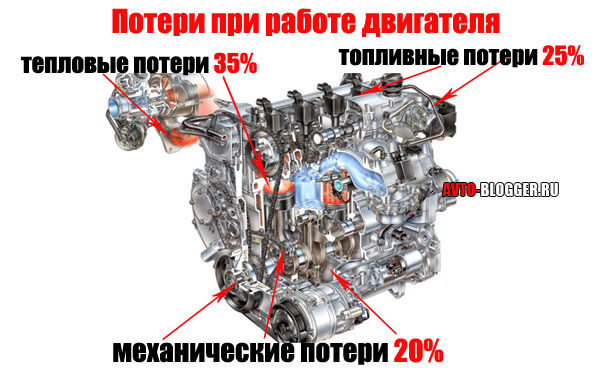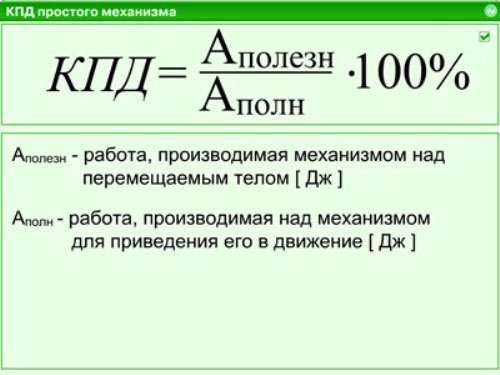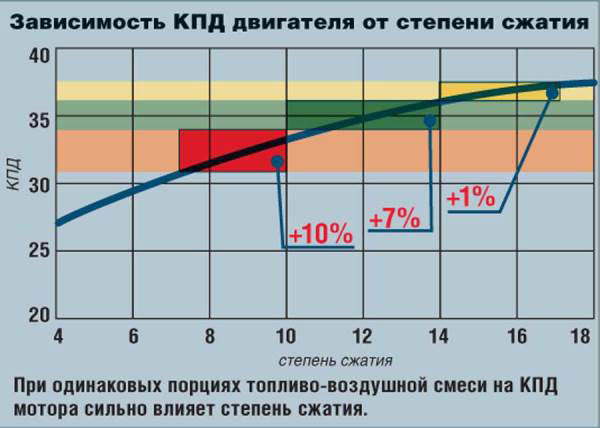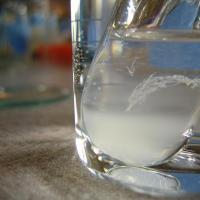efficiency of the internal combustion engine. How much is approximately equal, as well as power in percent
Probably, everyone wondered about the efficiency (Coefficient of Efficiency) of an internal combustion engine. After all, the higher this indicator, the more efficient the power unit works. At the moment, the electric type is considered the most effective, its efficiency can reach up to 90 - 95%, but for internal combustion engines, whether it be diesel or gasoline, to put it mildly, it is far from ideal ...
To be honest, modern engine options are much more efficient than their counterparts, which were released 10 years ago, and there are a lot of reasons for this. Think for yourself before the 1.6-liter option, it gave out only 60 - 70 hp. And now this value can reach 130 - 150 hp. This is painstaking work to increase efficiency, in which each "step" is given by trial and error. However, let's start with a definition.
- this is the value of the ratio of two quantities, the power that is supplied to the crankshaft of the engine to the power received by the piston, due to the pressure of the gases that were formed by igniting the fuel.
In simple terms, this is the conversion of thermal or thermal energy that appears during the combustion of the fuel mixture (air and gasoline) into mechanical energy. It should be noted that this has already happened, for example, in steam power plants - also the fuel, under the influence of temperature, pushed the pistons of the units. However, the installations there were many times larger, and the fuel itself was solid (usually coal or firewood), which made it difficult to transport and operate it, it was constantly necessary to “feed” it into the furnace with shovels. Internal combustion engines are much more compact and lighter than steam engines, and fuel is much easier to store and transport.
More about losses
Looking ahead, we can confidently say that the efficiency of a gasoline engine is in the range of 20 to 25%. And there are many reasons for this. If we take the incoming fuel and recalculate it as a percentage, then we kind of get “100% of the energy” that is transferred to the engine, and then the losses went:

1)Fuel efficiency . Not all fuel burns out, a small part of it leaves with exhaust gases, at this level we already lose up to 25% of efficiency. Of course, now fuel systems are improving, an injector has appeared, but it is far from ideal.
2) The second is heat losses.And . The engine warms up itself and many other elements, such as radiators, its body, the liquid that circulates in it. Also, part of the heat goes away with the exhaust gases. For all this, up to 35% loss of efficiency.
3) The third is mechanical losses . ON all kinds of pistons, connecting rods, rings - all places where there is friction. This includes losses from the load of the generator, for example, the more electricity the generator produces, the more it slows down the rotation of the crankshaft. Of course, lubricants have also stepped forward, but again, no one has yet completely defeated friction - another 20% loss
Thus, in the dry residue, the efficiency is about 20%! Of course, there are stand-out options from gasoline options, in which this figure is increased to 25%, but there are not so many of them.

That is, if your car consumes 10 liters of fuel per 100 km, then only 2 liters of them will go directly to work, and the rest are losses!
Of course, you can increase the power, for example, by boring the head, we are watching a short video.
If you remember the formula, you get:

Which engine has the highest efficiency?
Now I want to talk about gasoline and diesel options, and find out which one is the most efficient.
To put it in simple terms, and not to go into the jungle of technical terms, then - if we compare two efficiencies - the most efficient of them, of course, is diesel, and here's why:
1) A gasoline engine converts only 25% of energy into mechanical energy, but a diesel engine converts about 40%.
2) If you equip the diesel type with a turbocharger, then you can achieve an efficiency of 50-53%, and this is very significant.

So why is it so effective? It's simple - despite the similar type of work (both are internal combustion units), a diesel engine does its job much more efficiently. It has greater compression, and the fuel ignites from a different principle. It heats up less, which means it saves on cooling, it has fewer valves (savings on friction), and it also doesn’t have the usual ignition coils and spark plugs, which means it doesn’t require additional energy costs from the generator. It works at lower speeds, there is no need to crank the crankshaft wildly - all this makes the diesel version a champion in efficiency.
About Diesel Fuel Efficiency
From a higher value of the efficiency factor, fuel efficiency also follows. So, for example, a 1.6-liter engine can consume only 3-5 liters in the city, in contrast to the gasoline type, where the consumption is 7-12 liters. A diesel engine has a lot, the engine itself is often more compact and lighter, and also more environmentally friendly lately. All these positive moments are achieved due to the greater value, there is a direct relationship between efficiency and compression, see a small plate.

However, despite all the advantages, it also has many disadvantages.
As it becomes clear, the efficiency of an internal combustion engine is far from ideal, so the future is clearly with electric options - it remains only to find efficient batteries that are not afraid of frost and hold a charge for a long time.



